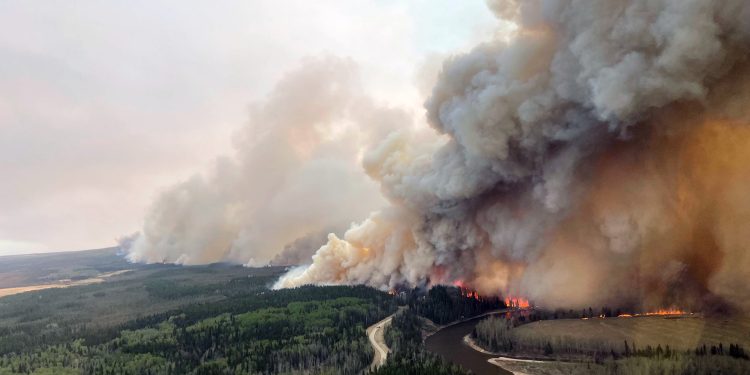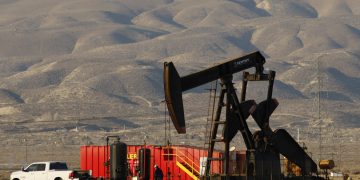Fires in Alberta Lead to a 7% Drop in Oil Production in Canada
Massive wildfires have engulfed Alberta, a key energy-producing province in Canada, forcing oil companies to halt production. As of June 2, the total volume of shut-in production is estimated at nearly 350,000 barrels of heavy oil per day, which represents approximately 7% of the country’s total production. The immediate threat to oil sands infrastructure comes from a large-scale wildfire burning near the province’s eastern border.
Among the operators who have reduced production due to the 61,500-hectare wildfire near the Saskatchewan borderare Cenovus Energy Inc., MEG Energy Corp., and Canadian Natural Resources Ltd. As of Monday morning, the threat to production assets was high: the Caribou Lake wildfire and several other uncontrolled fires (ranging from 10 hectares in size) were located within approximately 10 kilometers of facilities with a combined capacity of about 470,000 barrels per day.
An emergency wildfire situation has developed in Canada’s prairie provinces (Alberta, Saskatchewan, Manitoba), prompting the evacuation of thousands of residents from high-risk areas. As of Monday morning alone, 26 uncontrolled fires were burning in Alberta, the country’s main oil-producing region.
Oil and Capital (Neft i Kapital) noted that this supply reduction from the world’s fourth-largest oil producer comes amid an already tight market for heavy grades of oil. Earlier, Canadian production had already decreased due to scheduled maintenance at oil fields, and the situation in the heavy oil market has been further exacerbated by the U.S. sanctions regime on Venezuela, which has limited the country’s oil exports—mainly consisting of high-sulfur oil.







